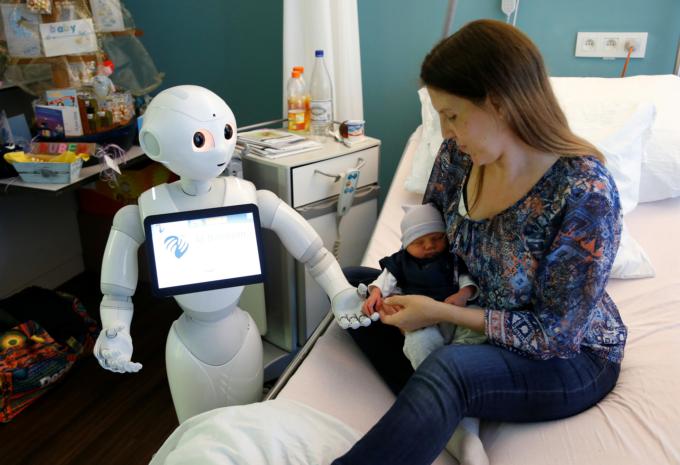
Culture
The population of many industrialized nations, including the U.S., has dropped below replacement levels.

Doerflinger
As a member of the Pontifical Academy for Life, I have attended its annual assemblies in Rome since 2012. Pope Francis has asked the academy to explore a range of issues with moral implications, in keeping with an "integral ecology" linking respect for human life with human solidarity and respect for creation.
Nonetheless, I was surprised to find that this year's assembly in February was on "Roboethics." How do issues arising from our use of robots link up with our concern about respect for human life? What I found was that, as Pope Francis has reminded us in "Laudato Si'": "Everything is connected."
One presentation was by Japanese robotics expert Hiroshi Ishiguro, who wants to develop robots who in conversation can convince others that they are talking with another human being (often known as the Turing Test).
Other speakers talked about giving robots the routine and repetitive tasks of an industrialized society, allowing humans to devote themselves to more interesting and creative activities.
But Ishiguro sees robots becoming our companions, caretakers and even romantic partners -- preparing for a future where we become robots ourselves, acquiring an inorganic body and brain that can survive what we have made of our world.
Current experiments include the use of robots to converse with seniors in nursing homes, and even to "keep company" with patients who are close to death.
In one video, a robotic device strokes the arm of a dying woman, assuring her that "your family loves you very much." I reflected that the machine has been programmed to lie, since the family is too busy with its own concerns to be nearby.
Ishiguro claims this is necessary due to Japan's rapidly aging population. He says that in 50 years, the country's population will be half what it is now; predictions by others are less drastic but still alarming. There are not enough young people, or at least not enough who are willing, to keep company with the elderly.
In Japan, this "demographic winter" arose because many young adults have decided they lack the time, resources or energy for having children, or ultimately for getting married.
In recent years, many have lost interest in having intimate relationships with people. Increasingly, young Japanese men have turned to watching anime, accessing internet pornography and playing video games, even having "virtual girlfriends."
The BBC has even aired a documentary titled "No Sex Please, We're Japanese." As one young man appearing in the documentary says: "Why would you get into something as messy, as troubling, as disorienting as a relationship when you could have a virtual girlfriend, a virtual experience, which maybe is even superior to the reality?"
The population of many industrialized nations, including the U.S., has dropped below replacement levels. Planned Parenthood makes the self-serving claim that this is due to more effective contraception. But decreases in abortions and births in the U.S. have been most rapid among teens, who are engaging in less premature sexual activity.
That trend is welcome. But is it due to greater responsibility and self-control? Or in an age of immersion in social media, is it partly due to disengagement from face-to-face relationships with other people?
Will Americans, too, ultimately relate more easily to robots, as we find it too "messy" to bond with people who have minds and wills of their own?
Finally, what becomes of our humanity when the repetitive and unwanted tasks we hand over to machines is the task of taking care of each other? And what then becomes of the unique respect we owe to human life? The academy is suggesting that we need to think about these questions now.
- Richard Doerflinger worked for 36 years in the Secretariat of Pro-Life Activities of the U.S. Conference of Catholic Bishops. He writes from Washington state.
Recent articles in the Culture & Events section
-
'Dignitas' and the mediaRussell Shaw
-
Scripture Reflection for April 14, 2024, Third Sunday of EasterDeacon Greg Kandra
-
St. Helena's House is established in the South EndThomas Lester
-
Is this synodality?Russell Shaw
-
Poking the hornet's nest of IVFFather Tadeusz Pacholczyk


















